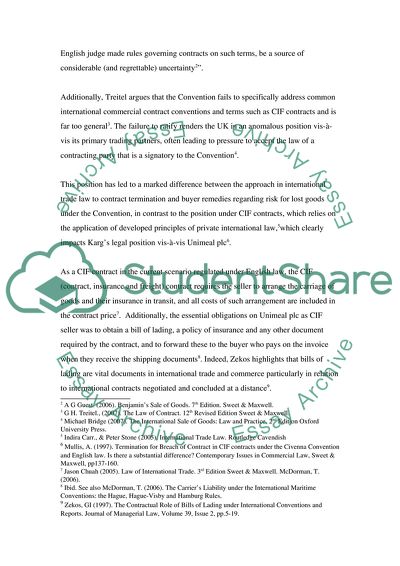Cite this document
(“Kargs Legal Position with Regard to the Damaged Cargo Case Study”, n.d.)
Kargs Legal Position with Regard to the Damaged Cargo Case Study. Retrieved from https://studentshare.org/law/1732604-international-commercial-law-problem-question-the-problem-question-is-three-paragraphs
Kargs Legal Position with Regard to the Damaged Cargo Case Study. Retrieved from https://studentshare.org/law/1732604-international-commercial-law-problem-question-the-problem-question-is-three-paragraphs
(Kargs Legal Position With Regard to the Damaged Cargo Case Study)
Kargs Legal Position With Regard to the Damaged Cargo Case Study. https://studentshare.org/law/1732604-international-commercial-law-problem-question-the-problem-question-is-three-paragraphs.
Kargs Legal Position With Regard to the Damaged Cargo Case Study. https://studentshare.org/law/1732604-international-commercial-law-problem-question-the-problem-question-is-three-paragraphs.
“Kargs Legal Position With Regard to the Damaged Cargo Case Study”, n.d. https://studentshare.org/law/1732604-international-commercial-law-problem-question-the-problem-question-is-three-paragraphs.


